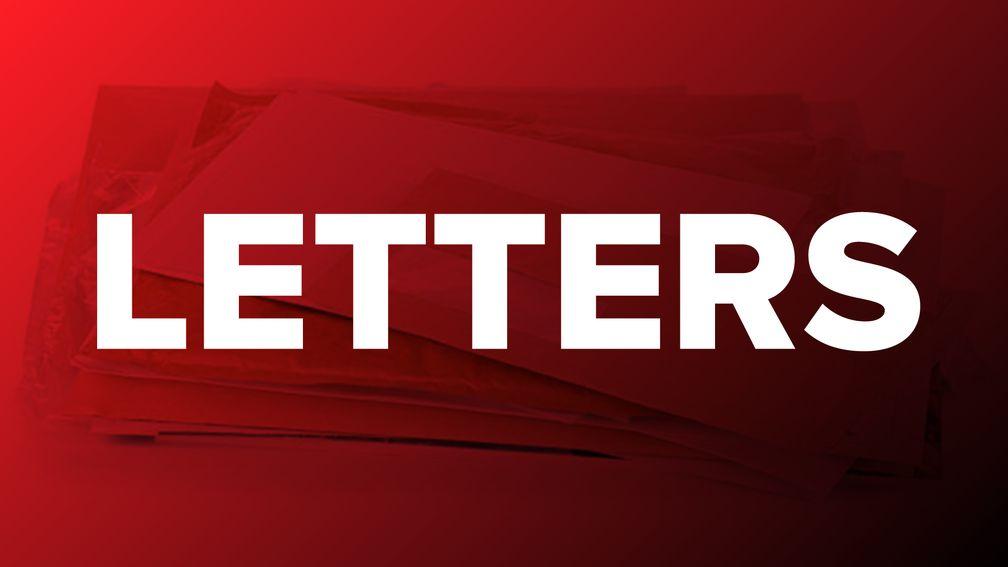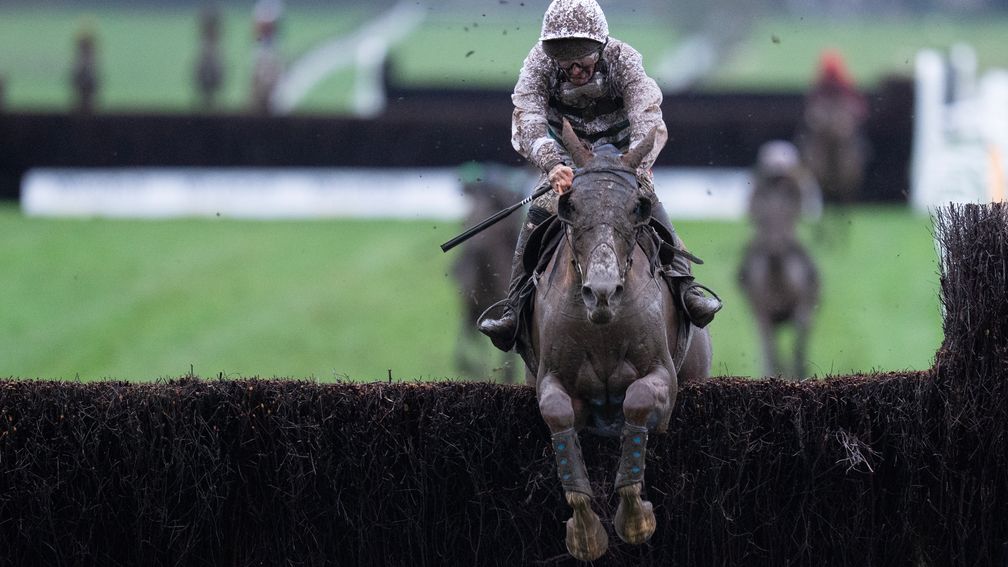Be on the right track: a road for ambulances should be mandatory

This is my 50th year of owning jumpers and, goodness me, how things have changed in that time. From fences and hurdles being omitted due to low sun to the adaptation of the Grand National fences to name just two.
We all know that safety for horses and jockeys is paramount. However, having attended Fakenham races this week (January 2), which was abandoned due to ambulances not being able to negotiate the inner track, I feel changes are needed.
Yes, ambulances need to be able to reach stricken jockeys, but in this day and age, should it not be mandatory for racecourses to have a track with a hard surface that vehicles can negotiate?
We are not talking about point-to-points (my first love) but racecourses that are run as a professional business and are much-needed by bookmakers for their business.
In the worst-case scenario, could not a tractor have towed an ambulance around the track?
Keith FJ Loads
Bruisyard, Suffolk
Top winner on a top day
Last week I took my granddaughter, who is 24, to Chepstow for the Welsh Grand National for what was her first time going racing.
There was a capacity crowd and everyone was courteous to each other in the grandstand and by the parade ring. They were all very knowledgeable and seemed so happy to be racing, and I would like to thank every single person responsible for putting on such a wonderful day’s racing despite such horrendous weather conditions.
From a punting point of view, my granddaughter backed two winners – Classic Concorde at 7-1 and Nassalam in the big one at 5-1. Needless to say, she has fallen in love with a day at the races and can’t wait to go again.
Based on that performance, I believe Nassalam is good enough for the Gold Cup, especially if the going turned up soft at Cheltenham.
I can recall three previous Welsh National winners who went on to victory in the Gold Cup – Burrough Hill Lad, Cool Ground and Master Oats.
If I were Gary Moore, I would wait another year for the Grand National with his stable star as he’s only just turned seven.
Thank you again, Chepstow
Dennis Jones
Bargoed, Glamorgan

Never forget the racegoer
Chris Wall’s letter (January 5) calling for racing’s stakeholders to unite to ensure its survival is largely appropriate but it ignores those on whom, I suggest, racing depends for its very existence – paying racegoers.
Us customers, not having a voice, are routinely ignored, not to say treated as a given that we will continue to make racing viable.
Despite allowances for the weather of late, no-one can possibly claim the jumps programme has put on enough competitive, interesting racing this season. Personally, I do not count field sizes of under five in that category and unless people like me and my cohorts find the show persuasive, gate receipts are likely to diminish rather than rise.
I am not party to the detailed accounts of racecourses, but am led to believe that badge sales are a fundamental part of their finances. If that is so, a widespread disinclination on the part of paying racegoers to attend would be critical.
If people are not attending, TV audience numbers will also decline with resultant loss of media rights.
A further issue might well be the current initiative to sell shares in horses in training. I am not suggesting that all the several thousand owners of a horse would expect to avail themselves of the free entry provision, but you must accept the thrust of this is to facilitate this to some degree, which inevitably deprives racecourses of income.
I would invite some of the stakeholders Wall refers to to consider the position of ordinary racegoers, who in my view are the lifeblood of the sport.
We are encouraged to book ahead, in many cases involving hotel costs in addition to travel, on the basis of declared runners. Whatever the reasons, if the actual race pans out to be effectively a match or even a walkover, I for one do not see it as money well spent.
On New Year’s Day, after watching a disappointing card from Cheltenham, I switched over to the football where about the same number who attended Cheltenham also paid for admission to Pride Park. I can only conclude those at Derby got better value for what was a similar price.
To solve a problem, first you must define it accurately. I believe I have and this is where I leave it to those who are paid good money to come up with answers and, above all, answers which are acceptable to racing’s forgotten band of followers.
Clive Godber
Hull
We need the Hearn magic
Luke Littler is everywhere in the media after the 16-year-old’s incredible rise to world darts stardom.
Billy Loughnane is also poised to carry on with the teenage revolution in 2024. His riding skills, personality and charisma are some of racing’s greatest potential assets.
Loughnane’s recent big-priced treble at Kempton is proof he’s going to be the go-to jockey for so many different trainers.
Darts has brilliantly embraced premierisation and that sport’s profile has never been higher, with millions of viewers worldwide tuning in to watch Littler attempt to make history in Wednesday’s PDC World Championship final at Alexandra Palace.
What can racing learn from the stellar rise of darts and football? Both sports have developed because they have the executives who realise how to optimise their sport’s assets and transform their particular game’s experience to another level.
Professional Darts Corporation supremo Barry Hearn has been the catalyst in so many sporting success stories in boxing, snooker and now darts.
One of the greatest moments in Hearn’s life was when Subjectivist won the Ascot Gold Cup, a horse who was bred by his wife Susan.
Surely the key to the success that we all hope premierisation will bring to racing is staring us all squarely in the face. Bring in Barry Hearn and our future could become innovative, profitable and very exciting.
John Hall
Birmingham
We need a better spread
There may be a reason, and if it is racing staff welfare, fair enough, but can anyone explain why there were just two jumps meetings in Britain on New Year’s Eve? Both Uttoxeter and Warwick were sold out weeks in advance, but being within 60 miles of each other, both were affected by the same wet weather and had to abandon.Surely this suggests there is a demand for fixtures on this day but that there should be a wider geographical spread of meetings to include north and south as well as the Midlands.
Adrian Stelling
Handicaps blunt talent
Sport generates a natural hierarchy. It determines the fastest, the strongest, the best. Yet the handicapping system in racing is designed to stop the more talented from winning. In 2023, handicaps made up the vast majority of all non-juvenile contests run in Britain, so can British racing still be thought of as a sport?
Peter Howes
Southmoor, Oxon
Read more here
Inaugural Sunday evening meeting at Wolverhampton attracts full fields for seven out of eight races

Do you want £700+ of free bets? Racing Post have got the best offers, all in one place. Visit racingpost.com/freebets to find out more.
Published on 6 January 2024inLetters
Last updated 17:57, 6 January 2024
- John Dawson’s overzealous ban for Hunters' Chase winning ride ruined a wonderful story
- Here's a painless, practical way to fund racehorse aftercare
- Remembering Alan Horrocks: Dad’s passion for horses and people shone through
- 'They are like Frankenstein’s monster and the ramifications will be dreadful' - Racing Post readers on affordability checks
- 'The confusion stems from the Gambling Commission's approach' - more readers' views on affordability checks
- John Dawson’s overzealous ban for Hunters' Chase winning ride ruined a wonderful story
- Here's a painless, practical way to fund racehorse aftercare
- Remembering Alan Horrocks: Dad’s passion for horses and people shone through
- 'They are like Frankenstein’s monster and the ramifications will be dreadful' - Racing Post readers on affordability checks
- 'The confusion stems from the Gambling Commission's approach' - more readers' views on affordability checks